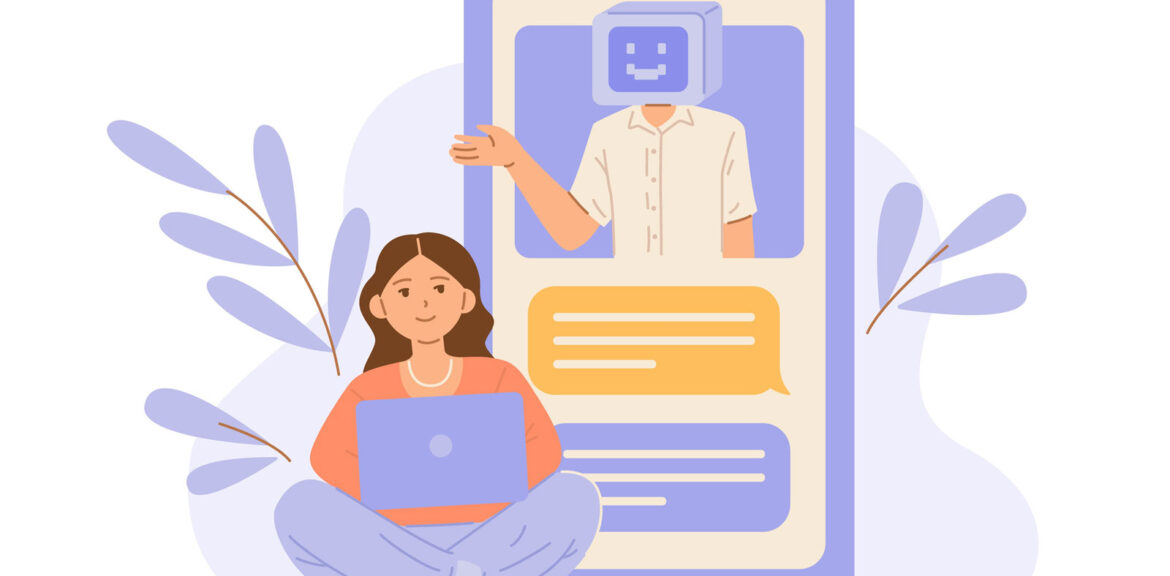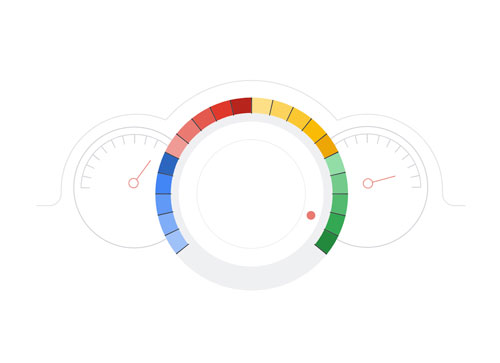‘Write a blog post about whether or not ChatGPT can write for search engine optimization.’
What if it really was that easy?
Unless you’ve worked in communications, the importance of investing time, energy, and budget into marketing can be a tough sell. As a business owner, being able to dictate your marketing work to an artificial intelligence website seems like a dream come true. But what are the pros and cons of using ChatGPT in marketing and content creation? Let’s find out.
What is Artificial Intelligence?
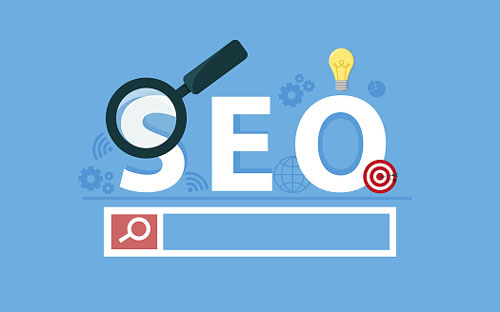
In order to understand ChatGPT, we have to dive into a bit more about artificial intelligence and what it can do. Artificial intelligence, or AI, is a form of computer technology designed to mimic human intelligence to complete tasks. Although conversations surrounding AI have drastically increased recently, we have been using this technology to make our lives easier for years.
Examples of artificial intelligence include:
- Autocorrect
- Facial recognition
- Map navigation
- Search engine recommended searches
- Digital assistants
- Social media
Even though there’s still no chance that I will ever mean “ducking,” autocorrect is an excellent example of how we use artificial intelligence on a daily basis. If you work in marketing or want to write professional emails or essays, tools like Grammarly are prime examples of using AI in your everyday life. We also can add unlocking our phone’s passwords, traveling from one place to another with Waze or Apple Maps, recommended searches in search engines, Amazon Alexa and Google’s digital assistant, and how social media shows us different content based on algorithms and accounts we’ve interacted with to the list.
What Are the Types of Artificial Intelligence?

Artificial intelligence contains learning that falls into one of three categories:
- Narrow
- General
- Super
Michigan State University professor of integrative biology Arend Hintze has defined four main types of artificial intelligence, although the final two don’t currently exist:
Reactive machines: These AI programs are task-specific and process information reactively. An example of reactive machines is Netflix recommendations based on a user’s search and viewing history.
Limited memory: This type of AI gets smarter the more information it receives. Self-driving cars utilize limited memory AI to program signs, traffic lights, and more.
Theory of mind: Humans can react based on how our actions and emotions impact others. This type of AI, if created, would be able to understand the thoughts and feelings of entities around it and change its behavior in response.
Self-awareness: We’re still a long way away from this type of AI. Self-awareness can understand its feelings, environment, and sense or predict the feelings of entities around it. For example, instead of, “I’m cold,” self-awareness AI would create “I want to wear my gray sweater because it’s my favorite.”
What is ChatGPT?
ChatGPT, which stands for Chat Generative Pre-Trained Transformer, is an artificial intelligence program focusing on language responses. That’s really just a fancy way of saying that it is a chatbot that can imitate human conversations, brainstorm ideas, search the web for information, tell jokes, and more. The technology is the creation of OpenAI, a deployment and research company that aims to ensure that “artificial general intelligence benefits all of humanity.”
There are a few iterations of the GPT software, including InstructGPT and ChatGPT. On the OpenAI website, the company gives an example of how it has added “safety mitigations” for ChatGPT to increase accurate responses by considering all applicable data.
Incorporating ChatGPT Safety Measures

One of the first things we noticed when exploring the basic version of ChatGPT is the prompt that appears when visiting the site. Before utilizing the program, a window appears that advises the user that they are using a free research preview to improve the technology to make it safer.
It adds, “While we have safeguards in place, the system may occasionally generate incorrect or misleading information and produce offensive or biased content. It is not intended to give advice.”
In one example, it highlights the responses from ChatGPT and InstructGPT when asked to tell a user about when Christopher Columbus visited the United States in 2015. InstructGPT responds without evaluating whether or not the question reflects complete accuracy by replying, “Christopher Columbus came to the US in 2015, and he was very excited to be here. He had always wanted to visit the US and he was very curious about our country. He was very impressed with our country and he enjoyed his time here.”
ChatGPT, on the other hand, begins by addressing the issue with the question, “This question is a bit tricky because Christopher Columbus died in 1506, so he could not have come to the US in 2015. But let’s pretend for a moment that he did!”
Updates to ChatGPT
Most recently, OpenAI released a new version of ChatGPT called GPT-4. According to the website, “GPT-4 can solve difficult problems with greater accuracy, thanks to its broader general knowledge and problem-solving abilities.”
The update includes increased collaboration and creativity, allowing the platform to produce more technical writing, including screenplays and songs, and learn the ins and outs of a user’s writing style. GPT-4 can also use images to create classifications and captions and analyze situations.
Can GPT-4 Understand Longform Content?
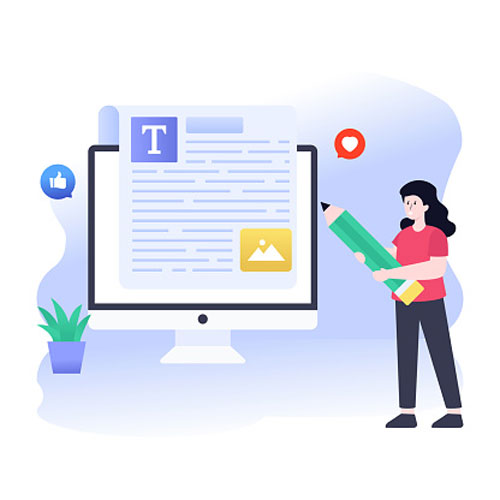
The final notable update to ChatGPT is its ability to intake massive amounts of text. The program can handle over 25,000 words, allowing it to create extended conversations and analyses. The example the website gives is the program’s ability to analyze Rihanna’s Wikipedia page and then detail her 2023 Super Bowl performance and why it was unique.
Can You Use ChatGPT for SEO?
Search engine optimization, also known as SEO, is the process of creating content that is designed to help the page rank higher on search engines such as Google. Many companies hire marketing agencies to outsource their content creation, social media, and blog writing, and some people are asking whether or not AI-created marketing content will become the future.
Although there are certainly ways to use ChatGPT for SEO, we will dive deeper into why you don’t want to rely entirely on AI for your marketing efforts.
Will Google Penalize AI Content?
The use of AI content on websites and whether or not Google will penalize businesses that use bots like ChatGPT for content creation has been a hot topic. Last year, Google Search Advocate John Mueller said that using AI to create website content violates the company’s policies and would cause the content to be flagged as spam. Although this may seem like the end of the conversation, it doesn’t mean you can’t use AI to make your SEO research smarter and more efficient.
How to Use ChatGPT for SEO
Whether you’re a small business that wants to optimize its social media or SEO efforts or a marketing agency that wants to be more efficient with its research and execution, let’s look at how to use GPT-4 to boost your SEO success. Some great ways to use it include:
- Keyword research
- FAQs for website content
- Schema markup
- Google Search Console Regex
- Creating blog topics
GPT-4 and Keyword Research

First, you need to understand what an SEO keyword is. Thankfully, we’ve broken that down for you in one of our previous blogs!
Using well-researched SEO keywords and building an effective keyword strategy is critical to advancing a website’s search engine ranking and attracting more clients and customers. In addition, understanding what keywords someone searches for when they’re looking for different services or topics will help you build a keyword strategy that accomplishes your goals.
Examples of Keyword Research with ChatGPT
ChatGPT can help you find a list of keywords to build into your strategy without you doing the legwork. To test this out, I asked ChatGPT to help me create a simple keyword strategy for my friend’s new coffee shop, Backstage Coffee. The program returned these five suggestions for keywords:
- Location-based keywords
- Product-based keywords
- Brand-based keywords
- Event-based keywords
- Industry-based keywords
Since the coffee shop is in Greenville, North Carolina, the keywords the bot suggested based on location are “coffee shop Greenville NC,” “best coffee shop in Greenville,” and “coffee shop near me in Greenville.” It also suggested using keywords that revolved around the shop’s products, such as “espresso drinks,” “iced coffee,” “fair trade coffee,” and any items that make the menu unique.
For brand-based keywords, ChatGPT suggested phrases that highlight the shop’s unique identity, such as “community coffee shop,” “cozy coffee shop,” and “local coffee shop,” to help attract customers looking for a specific aesthetic. Event-based keywords may or may not apply depending on your business. If you host events, this is a great place to advertise for things like “coffee shop trivia night” or “coffee shop happy hour.”
Finally, industry-based keywords are search terms that reflect trends and other areas customers may be searching for. ChatGPT recommended terms like “coffee shop reviews” and “coffee shop trends” for this area.
Using ChatGPT for Website FAQs
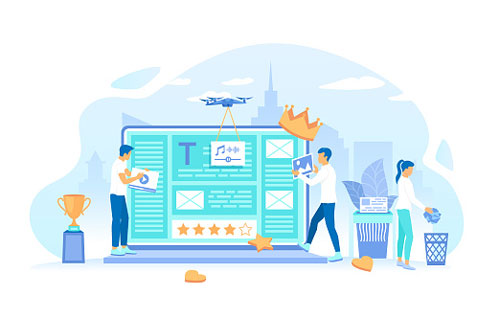
Trying to answer questions that you’ve also written can be challenging. ChatGPT is an excellent resource for brainstorming questions to answer for an FAQ section of our website. In keeping with my example for Backstage Coffee, I asked ChatGPT, “What are some common questions that people have about coffee shops?”
The list that it returned was impressive and included 20 questions, including:
- Can I order a non-dairy milk alternative?
- Is there free Wi-Fi available?
- Do you have outdoor seating?
- Is there a loyalty program or rewards system?
- Can I order online or through a mobile app?
- Can I purchase whole bean coffee to take home?
- Do you host events or open mic nights?
- Do you offer any discounts for students or seniors?
- Do you partner with any local businesses or organizations?
Can ChatGPT Create Schema Markups for Websites?
Schema markup, also known as structured data, is a must-have for your website. This data helps search engines understand, contextualize, and connect search queries to website content. Although ChatGPT can create schema markup for your website, unless you already know the specific information you need, the program could create inaccurate markup.
For marketing agencies, you can use ChatGPT to write JSON-LD for website FAQs. If you already have the FAQs written and answered – as we did above! – you could accomplish this task really quickly! However, if you’re not experienced with JSON-LD, using the Schema Markup Validator and including a human review element is always recommended. This is why we suggest incorporating an agency expert into your marketing plans.
Google Search Console Regex and ChatGPT
Pairing a regular expression, or regex, with ChatGPT and Google Search Console (GSC) can be an intelligent way to increase efficiency and do market research. GSC has introduced the ability to incorporate regex to narrow down page performance information and filter search queries to help you maximize your SEO.
How to Use ChatGPT for Creating Blog Content
Creating blog content is a must for drawing new customers to your website. Blogs answer questions, incorporate keywords (if you’re asking yourself, “does my blog really needs keywords?” we answered that, too!), and help you rank higher on search engines. Although ChatGPT may seem like a great way to mass-generate content, there are three main issues with using the program to create website text and blog posts.
3 Problems with Using ChatGPT to Create Blog Content
- Creativity
- Accuracy
- Scalability
Can ChatGPT and GPT-4 Provide Creative SEO Content?
The short answer is yes, but it can’t replace an actual human. Although ChatGPT and GPT-4 can generate text that resembles human conversation, the inflections and unique tone required to make content successful aren’t necessarily what this program is best at.
One of the most important things that an agency or internal marketing and communications team can do for your company is to create and expand on a unique brand voice. This process requires a lot of creativity, originality, and a human touch.
One of the important notes presented when we were experimenting with OpenAI was that the program wasn’t fully updated with information past 2021. So, although the model can create very advanced conversations, it can’t generate truthful and reliable information in every instance.
What is E-E-A-T?
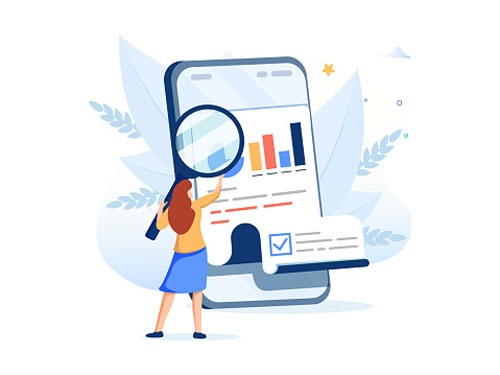
When creating content for SEO, accuracy is critical. There are specific nuances that exist when discussing certain topics, and the focus should always be on quality over quantity. E-E-A-T stands for:
- Expertise
- Experience
- Authoritativeness
- Trustworthiness
When evaluating your AI-generated content, considering these guidelines is a must for ensuring that you’re complying with Google and creating the best content possible.
Should I Hire an Agency for SEO?
We’ve seen the creation of hundreds of tools for SEO and content creation over the last decade, from social media monitoring and scheduling to search engine keyword research and more. ChatGPT will be a new tool in our toolbox, but it won’t be the holy grail that stops agencies in their tracks.
Moose May is a woman-owned small business marketing agency that can help you increase your search engine rankings, increase your sales and conversions, and get your products and services in front of more people, turning website visitors into customers.
